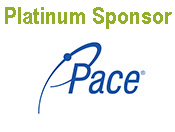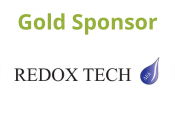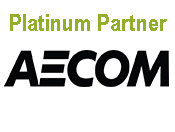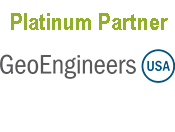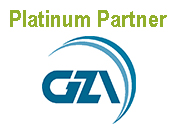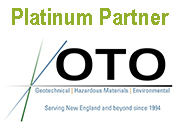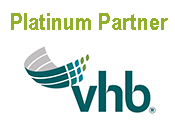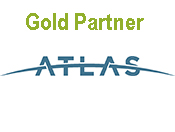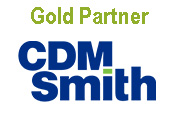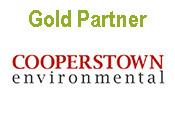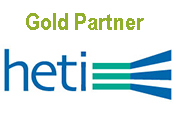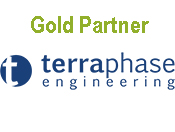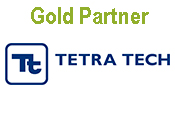- Emailing local officials,
- Conducting public meetings at PIP sites, and
- Establishing information repositories.
Updated Covid-19 Resources
|
BWSC Q & A: Covid-19 Edition
At last week's BWSC Office Hours, Paul Locke, BWSC Assistant Commissioner, announced that MassDEP has added a new question to the MCP Q & A: Covid-19 Edition. The question pertains to Limited Removal Action (LRA) Extensions.
The question is whether extensions will be granted in situations where there is an inability to meet the 120-day deadline for completing an LRA. In this case the delay is due to construction shutdowns in Boston.
MassDEP's response is:
If your client cannot conduct the Limited Removal Action prior to the end of the 120 days from the time s/he had knowledge of the PCB release, your client must notify.
The Department has issued guidance (available here) that describes its expectations and application of enforcement discretion for certain delays in conducting response actions during the COVID-19 State of Emergency. As stated in the guidance, all 2-hour, 72-hour and 120 day notifications must continue to be made during the State of Emergency. This is consistent with the provisions at 310 CMR 40.0025(1), which allow for written notices of delay in the case of a Force Majeure "except a deadline or time period for providing notification of a release or threat of release of oil and/or hazardous material, or an Imminent Hazard, as required by 310 CMR 40.0300..."
Questions may be submitted to MassDEP's BWSC at [email protected]. MassDEP staff will respond directly to the questions received and, if a question is of more general interest, post the answers on the webpage.
|
|
City of Boston Covid-19 Tools of the Trade
The City of Boston Inspectional Services Department has implemented new protocols for essential construction work in the City of Boston due to the Covid-19 public health emergency. As of May 18, 2020, The City of Boston began allowing essential construction on sites that met certain criteria, including filing a Covid-19 Safety plan and a signed affidavit.
To stay up to date with the latest news on construction in Boston, visit this website. You will also find Covid-19 guidelines and guidance videos there. Take a look at this video for tips to ensure your Boston jobsite is safe, sanitary and in compliance with Covid-19 requirements. Indoor Air and Covid-19
The LSPA's Technical Practices Committee (TPC) reminds us that the American Society of Heating, Refrigerating and Air-Conditioning Engineers (ASHRAE) has prepared a list of resources to address Coronavirus airborne transmission in hospitals, aircraft and other enclosed spaces. It can be found here.
If the topic of indoor air and building design/ventilation is of interest to you, please consider attending a TPC meeting; this topic is usually one of several meeting agenda items. The committee meets next by Zoom on June 10th from 8 am to 10 am. Contact Committee Chair Roger Thibault to receive the Zoom link.
Occupational Health and Safety
Another resource discussed at a recent TPC meeting is this guidance document from the U.S. Occupational Safety and Health Administration (OSHA) entitled "Guidance on Preparing Workplaces for COVID-19."
|
New Q&A On MCP During State of Emergency
| The LSPA received the following email yesterday afternoon from MassDEP BWSC. Among other things, it highlights a fact sheet with guidance outlining expectations related to MCP requirements and site work during the COVID-19 State of Emergency, including discussion of meeting response action deadlines for routine submittals. MassDEP recommends that should work be delayed by postponed field work, reduced staffing, or other interruptions, parties should notify MassDEP of the compliance delay in writing, include the deadline(s) that will be missed, and any measures, if applicable, taken to secure the disposal site during the period of work stoppage. The written notice of delay should be submitted to MassDEP through eDEP using transmittal form BWSC121: Notification of Delay. MassDEP BWSC also notes that it intends to exercise enforcement discretion for failure to meet deadlines for routine submittals during this State of Emergency. |
| ----------------------------------------------------------------------------------------------------------------------------------------- MassDEP has published a Fact Sheet on the continuity of waste site cleanup activities during the COVID-19 State of Emergency.
I expect we will discuss the new Fact Sheet and other matters during this week's BWSC Office Hours on Thursday morning. (DETAILS: https://www.mass.gov/service-details/bwsc-office-hours-video-calls)
As always, questions can be directed to [email protected] prior to the Thursday call.
I hope you are all safe & well.
|
|
On Friday, April 3, 2020 the LSPA submitted comments to the MA Department of Revenue on Working Draft Regulation 830 CMR 63.38Q.1, the Massachusetts Brownfields Tax Credit. Read our cover letter and the accompanying spreadsheet which presents our comments in more detail. Many thanks to the LSPA's Regulations Committee for compiling comments and to the many LSPA members who shared their feedback on the Working Draft regulation.
|
MassDEP BWSC Announces Office Hours
The LSPA received the following email this morning regarding the MassDEP BWSC New Office Hours.
Hope to see you there - virtually.
|
Waste Site Cleanup Advisory Committee members and Other Interested Stakeholders,
During yesterday's BWSC Advisory Committee meeting, it was suggested that the Bureau hold regular meetings over the next few weeks to address issues that may arise while we work through the new COVID-9 paradigm.
We have set aside time on Thursday mornings, 9:00 - 10:00, during which Liz Callahan and I will be available via Zoom.com.
At the very least we will take your questions, issues and concerns and try to find answer... or provide an opportunity to vent. Feel free to check in during that time, and we'll see how this format works for you (and for us).
It may be productive to send questions in to the [email protected] mailbox so that we can get a head start on the response.
Details for the call are below. You might want to add it to your calendar as a recurring event.
P.S. The handout and link to video from yesterday's meeting is (will be) available through the BWSC Advisory Committee web page.
|
|
Topic: MassDEP Waste Site Cleanup Advisory Office Hours
Date: Every Thursday, Starting April 2, 2020
Time: 09:00 - 10:00 AM Eastern Time (US and Canada)
Join Zoom Meeting
Meeting ID: 523 450 5769
One tap mobile
+19294362866,,5234505769# US (New York)
+13126266799,,5234505769# US (Chicago)
Dial by your location
+1 929 436 2866 US (New York)
+1 312 626 6799 US (Chicago)
+1 669 900 6833 US (San Jose)
+1 253 215 8782 US
+1 301 715 8592 US
+1 346 248 7799 US (Houston)
Meeting ID: 523 450 5769
Find your local number: https://zoom.us/u/axNF9imf4
|
In anticipation of the LSPA’s November 21, 2019 member meeting on MassDEP’s Natural Resource Damages (NRD) Program, the LSPA highlights one such project: the completion of the Mystic Riverfront Restoration project on the shores of the Mystic River in Arlington, MA at a location directly impacted by a 2013 spill of nearly 10,000 gallons of diesel fuel.
To compensate for the harm to the Mystic River from the spill, MassDEP settled a claim for Natural Resource Damages. These funds support work that began in 2017 and involved MassDEP, DCR, the Town of Arlington's Conservation Commission and DPW.
Read More
The LSP Association (LSPA) is sponsoring legislation to address this problem. Senate bill 594 would require insurance companies to automatically provide this coverage. Read more here and here to learn how the LSPA's legislation will close a loophole.
On Friday, July 19, 2019, at the end of MassDEP's public comment period, the LSPA submitted our comments on the 2019 Proposed MCP Amendments. Our cover letter summarized three key topics of concern: PFAS, Risk Characterization, and Transition Provisions. A separate document included 15 pages of comments.
LSPA's June 2019 Compliance Tip
The LSPA presented the following compliance tip at the June Membership Meeting at the Hilton Hotel in Woburn, MA on June 13, 2019.
COMPLIANCE TIP OF THE MONTH
Read More
LSP Exam Prep & Overview
Would it surprise you to know that at least 50 emerging professionals are considering or actively planning to take the LSP Exam in the next few years? That’s how many people attended the LSPA’s event last week hosted by the LSPA's Emerging Professionals Committee.
It was a curious and focused group who attentively listened while three new LSPs shared their experiences:
Read More
Nancy M. White and Iris Davis Memorial Golf Tournament
When: Friday, June 7, 2019
Time: 7:00 AM Registration; 8:00 AM Shotgun Start
Location: Far Corner Golf Course, 5 Barker Road, Boxford, MA - Directions
|
This event is being held in memory of our dear friends Nancy and Iris on June 7, 2019 at Far Comer Golf Course in Boxford, MA. Registration begins at 7:00 AM, with tee-off at 8:00 AM. |
Read More
May 2019 LSPA Compliance Tip
The LSPA presented the following compliance tip at the May Membership Meeting at the DoubleTree in Westborough, MA on May 16, 2019.
COMPLIANCE TIP OF THE MONTH
Read More
April Compliance Tip
The LSPA presented the following compliance tip at the April Membership Meeting at the Holiday Inn in Taunton, MA on April 23, 2019.
COMPLIANCE TIP OF THE MONTH
Read More
Proposed MCP Revisions Available
- Clarification and modification of provisions related to notification, Imminent Hazards, Tier Classification and Extensions, Remedial Additives, Status Reports, Remedial Monitoring Reports, Temporary Solutions, Active Exposure Pathway Mitigation Measures, Exposure Point Concentrations, Activity and Use Limitations, and public involvement;
- New adequately regulated provisions for disposal sites with Radioactive Materials;
- Updates to Reportable Concentrations (RCs) and numerical cleanup standards (Method 1) for a limited number of chemicals; and
- The addition of RCs and Method 1 standards for six perfluoroalkyl substances-Perfluoroheptanoic Acid (PFHpA), Perfluorohexanesulfonic Acid (PFHxS), Perfluorooctanoic Acid (PFOA), Perfluorooctane Sulfonate (PFOS), Perfluorononanoic Acid (PFNA) and Perfluorodecanoic Acid (PFDA)-emerging contaminants of concern for exposure in drinking water.
LSPA PFAS Task Force
MassDEP Response to CLF and Toxics Action PFAS Petition
In a January 28, 2019 email, Douglas E. Fine., Assistant Commissioner, Bureau of Water Resources, MassDEP wrote:
As you know, MassDEP received a “Petition for Rulemaking to Establish a Treatment Technique Drinking Water Standard for Per- and Polyfluoroalkyl Substances” on October 25, 2018 from the Conservation Law Foundation and Toxics Action Center. In accordance with regulatory requirements under 310 CMR 2.03 and 2.04, MassDEP held a public meeting on January 16, 2019 to consider the petition and to take comments on the petition. This opportunity allowed for representatives of the Conservation Law Foundation and the Toxics Action Center to present their views on the petition to 71 participants attending the meeting in person, and more than 80 watching via on-line stream. The public meeting also allowed for 21 stakeholders to formally offer their views. In addition, MassDEP received written comments from 45 different individuals and organizations. MassDEP greatly appreciates attention to this important matter from the petitioners, and the agency is very appreciative of the participation of all stakeholders through their written and oral comments, and attendance and viewing of the public meeting.
Read More
While we can't comment on the specifics of this Blackstone property, we can say that Licensed Site Professionals (LSPs), attorneys, the Massachusetts Department of Environmental Protection (MassDEP), and the LSP Association (LSPA) hear regularly from homeowners who are overwhelmed and desperate about how they will afford to clean up home heating oil releases on their properties to meet the requirements of the State’s environmental regulations. Home heating oil spills are emotional and difficult for all involved.
Many homeowners do not have the financial means to pay for costly cleanups, and MassDEP does not have the public funds to do this itself. The backing of homeowners' insurance companies is critical to make cleanups financially viable. The LSPA is working with state legislators to mandate that insurance companies provide coverage to homeowners using oil heat - just like they do for homeowners using electric, gas, and other energy sources, and just as most homeowners would expect when purchasing insurance.
Read More
January 2019 Compliance Tip of the Month
The LSPA presented the following compliance tip at the January Membership Meeting at the Holiday Inn in Taunton, MA on January 16, 2019.
Compliance Tip of the Month

